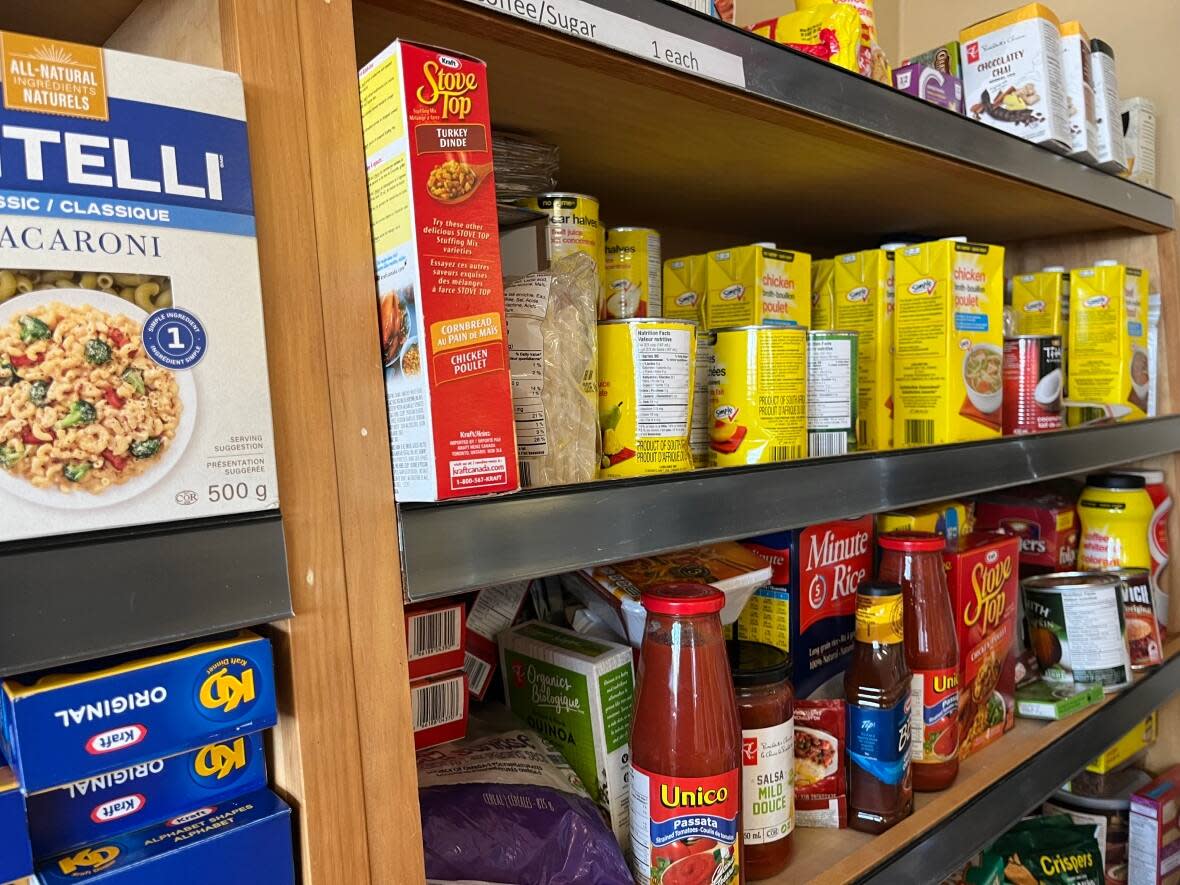Sask. residents use Moe bucks to pledge $75K to local charities

A group of Saskatchewan residents decided in the fall to put Moe bucks toward more problems.
The 500 Club, a pledge campaign, encouraged people who are financially stable enough to donate the $500 they received from the provincial government to a local charity.
From October through December of last year, 147 people pledged a combined $75,075, according to a news release issued by the 500 Club.
"We're happy that people have come together and made their pledges and donations," said Nicole Berg, a co-founder of the group.
"It has not solved any of our deepest issues here in the fabric of our society. But it's leaning into that generosity, that community spirit that is in our province."
In the fall, the provincial government sent cheques of $500 to adult taxpayers to help them better afford the rising cost of living caused by inflation. The money was sent regardless of a person's income level.
Founders of the 500 Club, a non-partisan initiative, wanted to give the money back to the community.
People could pledge from $100 to $1,000. Campaign organizers did not touch any of the money, Berg said, instead relying on people to honour what they said they would donate.
In all, people pledged money to 97 organizations — most of which were located in Saskatoon or Regina, according to the 500 Club. But organizations in multiple rural Saskatchewan communities also received donations.
More than one-third of the money — $28,000 — was pledged to organizations that address food insecurity.
"It's a really great testament to our community rallying together when times are tough," said John Bailey, CEO of the Regina Food Bank. The 500 Club said $5,250 was pledged to the organization.
There has been a significant increase in demand for food banks since the COVID-19 pandemic began.
In the fiscal year prior to the pandemic, the Regina Food Bank served about 86,000, Bailey said. With more than a month left in the current fiscal year, the food bank is on pace for 145,000 to 150,000.
"Our new baseline is considerably higher than it was before," he said.
"We're still seeing a steady creep-up of demand. We're not seeing really big jumps that we did at the beginning of the pandemic, but we're not seeing any reduction either."
Money donated to the Regina Food Bank can be stretched far, with $1 resulting in about three meals, Bailey said.


